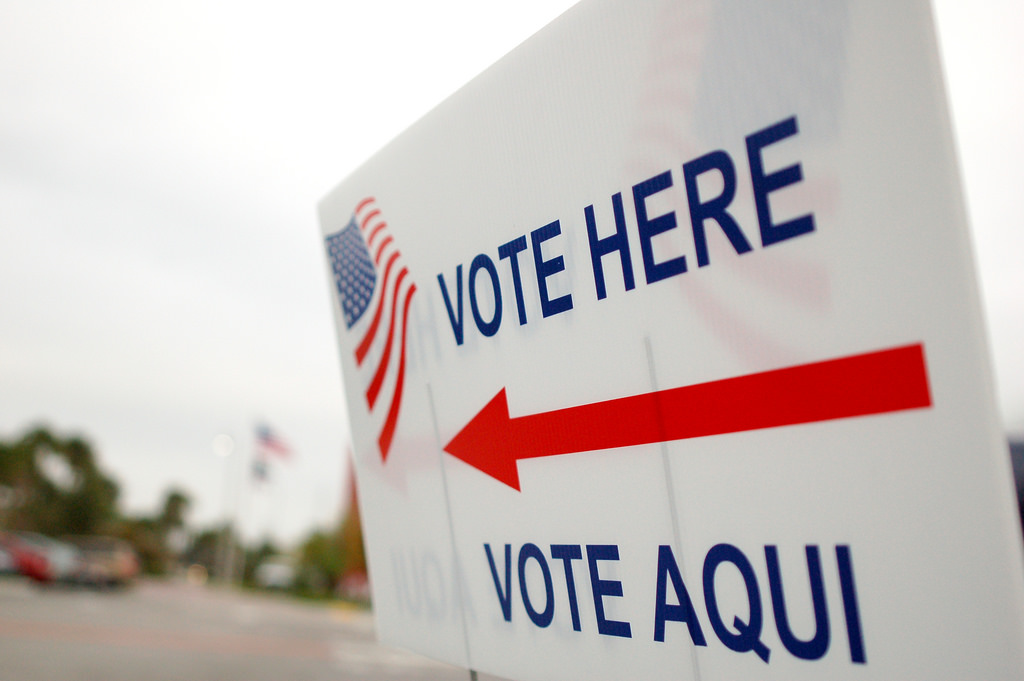In the 2018 midterm elections, Brian Kemp, who at the time was serving as Secretary of State, was elected governor of Georgia after a contentious battle with his opponent Stacey Abrams. Abrams would have been the first African-American woman to be the governor of Georgia but lost to her opponent by 1.4% of the vote. Abrams would have also been the first Democratic governor of Georgia since Roy Barnes, whose term ended in 2003. The election was ardently followed across the country, with Kemp and Abrams representing two strongly opposing political ideologies. Another reason for the national attention on the election was an ethical one. Had Kemp as Secretary of State managed the voting policies and procedures or even the voter rolls themselves to advantage himself and Republican candidates?
Kemp served as a Georgia State Senator from 2003 to 2004. He was elected Secretary of State in 2010 and still held that position in 2018. The Secretary of State’s duties are, “supervising and monitoring elections and providing campaign finance disclosure,” as stated in the New Georgia Encyclopedia.
Many Democratic politicians across the country and civil rights groups such as the NAACP called for Kemp’s resignation as Georgia’s secretary of state, citing an unethical conflict of interest in a candidate overseeing their own election.
Moraima Ivory, who served as the director of surrogacy and media on Stacey Abram’s campaign, said that “tactics were done to prevent the accurate, fair, and lawful right of every voter to the ability to vote equally in all parts of Georgia.” Specific claims of voter suppression included the “exact match” policy which requires that the information presented on voter registration forms must exactly match the voter’s information that has been collected by the Driver’s Service’s database or the Social Security Administration. If any of the information is inconsistent, for example an extra character is added or there is an unnecessary space, the voter’s registration forms are put on hold. This policy suspended nearly 53,000 voter registration forms. According to a report by the Associated Press, most of the suspended voter registration forms belonged to black voters.
Some voting machines in four counties, Bartow, Dodge, Cobb, and Henry,showed irregularities,such as not immediately registering the votes for the correct candidate or casting a vote before anyone had actually voted. These irregularities resulted in the NAACP filing lawsuits with all four counties Board of Elections.
Allison Burns, a twenty-one year old college student, made a request for an absentee ballot that was lost in the mail.Instead of being sent another one she was forced to drive for forty minutes to the voting center and sign an affidavit in person stating that her original ballot had been lost. “I just happened to be at home and could go through the process. Some of the procedures in place make it difficult to vote, but it’s worth it,”said Burns. Burn’s experience was complicated due to her casting an absentee ballot, but the long drives and waits at voting centers was a common experience.
While some voters cast their vote with ease, others waited for hours in long lines in overcrowded voting centers.
Kemp’s policies are consistent with Republican values with a focus on small businesses, tax reform and healthcare, according to his campaign website. He hopes to implement a “Track and Deport” program which would create a database to track crimes committed by “criminal illegal aliens” and expedite their deportation. He said this program would help lawmakers to create legislation to prevent illegal immigration in Georgia.
Stacey Abrams served as the Minority Leader in the Georgia House of Representatives from 2011 to 2017. Abrams is a Democrat and was the first black, female, major-party gubernatorial nominee in the history of the United States.
According to Abrams’ website, she is a proponent of gun law reform, equal rights, and Medicaid. She has pushed for voting rights and created the non-profit New Georgia Project to aid citizens of Georgia in the voting process.
Ivory also touches on the reality that voter suppression, specifically in the South, is not a new phenomenon; “If you look at any of the numbers in Georgia, there was absolutely targeted suppression [of] the vote in communities of color… that’s not a new thing in America. That’s a historic problem that we have battled ever since we [black people] have been given the right to vote.” Ivory references the 15th Amendment to the Constitution from 1870, giving African-American men the right to vote during the Reconstruction period. Following the demise of Reconstruction, state level legislation such as literacy tests before voting and “white primaries” which prohibited black people from choosing candidates in a primary election, were common voter suppression techniques.
Despite losing her election, Abram’s encouraged voters to keep fighting for fair elections in the future, “I implore each of you to not give in to that anger or apathy but instead turn to action. Because the antidote to injustice is progress. The cure to this malpractice is a fight for fairness in every election held – in every law passed – in every decision made”.
In the 2018 midterm elections, Brian Kemp, who at the time was serving as Secretary of State, was elected governor of Georgia after a contentious battle with his opponent Stacey Abrams. Abrams would have been the first African-American woman to be the governor of Georgia but lost to her opponent by 1.4% of the vote. Abrams would have also been the first Democratic governor of Georgia since Roy Barnes, whose term ended in 2003. The election was ardently followed across the country, with Kemp and Abrams representing two strongly opposing political ideologies. Another reason for the national attention on the election was an ethical one. Had Kemp as Secretary of State managed the voting policies and procedures or even the voter rolls themselves to advantage himself and Republican candidates?
Kemp served as a Georgia State Senator from 2003 to 2004. He was elected Secretary of State in 2010 and still held that position in 2018. The Secretary of State’s duties are, “supervising and monitoring elections and providing campaign finance disclosure,” as stated in the New Georgia Encyclopedia.
Many Democratic politicians across the country and civil rights groups such as the NAACP called for Kemp’s resignation as Georgia’s secretary of state, citing an unethical conflict of interest in a candidate overseeing their own election.
Moraima Ivory, who served as the director of surrogacy and media on Stacey Abram’s campaign, said that “tactics were done to prevent the accurate, fair, and lawful right of every voter to the ability to vote equally in all parts of Georgia.” Specific claims of voter suppression included the “exact match” policy which requires that the information presented on voter registration forms must exactly match the voter’s information that has been collected by the Driver’s Service’s database or the Social Security Administration. If any of the information is inconsistent, for example an extra character is added or there is an unnecessary space, the voter’s registration forms are put on hold. This policy suspended nearly 53,000 voter registration forms. According to a report by the Associated Press, most of the suspended voter registration forms belonged to black voters.
Some voting machines in four counties, Bartow, Dodge, Cobb, and Henry,showed irregularities,such as not immediately registering the votes for the correct candidate or casting a vote before anyone had actually voted. These irregularities resulted in the NAACP filing lawsuits with all four counties Board of Elections.
Allison Burns, a twenty-one year old college student, made a request for an absentee ballot that was lost in the mail.Instead of being sent another one she was forced to drive for forty minutes to the voting center and sign an affidavit in person stating that her original ballot had been lost. “I just happened to be at home and could go through the process. Some of the procedures in place make it difficult to vote, but it’s worth it,”said Burns. Burn’s experience was complicated due to her casting an absentee ballot, but the long drives and waits at voting centers was a common experience.
While some voters cast their vote with ease, others waited for hours in long lines in overcrowded voting centers.
Kemp’s policies are consistent with Republican values with a focus on small businesses, tax reform and healthcare, according to his campaign website. He hopes to implement a “Track and Deport” program which would create a database to track crimes committed by “criminal illegal aliens” and expedite their deportation. He said this program would help lawmakers to create legislation to prevent illegal immigration in Georgia.
Stacey Abrams served as the Minority Leader in the Georgia House of Representatives from 2011 to 2017. Abrams is a Democrat and was the first black, female, major-party gubernatorial nominee in the history of the United States.
According to Abrams’ website, she is a proponent of gun law reform, equal rights, and Medicaid. She has pushed for voting rights and created the non-profit New Georgia Project to aid citizens of Georgia in the voting process.
Ivory also touches on the reality that voter suppression, specifically in the South, is not a new phenomenon; “If you look at any of the numbers in Georgia, there was absolutely targeted suppression [of] the vote in communities of color… that’s not a new thing in America. That’s a historic problem that we have battled ever since we [black people] have been given the right to vote.” Ivory references the 15th Amendment to the Constitution from 1870, giving African-American men the right to vote during the Reconstruction period. Following the demise of Reconstruction, state level legislation such as literacy tests before voting and “white primaries” which prohibited black people from choosing candidates in a primary election, were common voter suppression techniques.
Despite losing her election, Abram’s encouraged voters to keep fighting for fair elections in the future, “I implore each of you to not give in to that anger or apathy but instead turn to action. Because the antidote to injustice is progress. The cure to this malpractice is a fight for fairness in every election held – in every law passed – in every decision made”.
In the 2018 midterm elections, Brian Kemp, who at the time was serving as Secretary of State, was elected governor of Georgia after a contentious battle with his opponent Stacey Abrams. Abrams would have been the first African-American woman to be the governor of Georgia but lost to her opponent by 1.4% of the vote. Abrams would have also been the first Democratic governor of Georgia since Roy Barnes, whose term ended in 2003. The election was ardently followed across the country, with Kemp and Abrams representing two strongly opposing political ideologies. Another reason for the national attention on the election was an ethical one. Had Kemp as Secretary of State managed the voting policies and procedures or even the voter rolls themselves to advantage himself and Republican candidates?
Kemp served as a Georgia State Senator from 2003 to 2004. He was elected Secretary of State in 2010 and still held that position in 2018. The Secretary of State’s duties are, “supervising and monitoring elections and providing campaign finance disclosure,” as stated in the New Georgia Encyclopedia.
Many Democratic politicians across the country and civil rights groups such as the NAACP called for Kemp’s resignation as Georgia’s secretary of state, citing an unethical conflict of interest in a candidate overseeing their own election.
Moraima Ivory, who served as the director of surrogacy and media on Stacey Abram’s campaign, said that “tactics were done to prevent the accurate, fair, and lawful right of every voter to the ability to vote equally in all parts of Georgia.” Specific claims of voter suppression included the “exact match” policy which requires that the information presented on voter registration forms must exactly match the voter’s information that has been collected by the Driver’s Service’s database or the Social Security Administration. If any of the information is inconsistent, for example an extra character is added or there is an unnecessary space, the voter’s registration forms are put on hold. This policy suspended nearly 53,000 voter registration forms. According to a report by the Associated Press, most of the suspended voter registration forms belonged to black voters.
Some voting machines in four counties, Bartow, Dodge, Cobb, and Henry,showed irregularities,such as not immediately registering the votes for the correct candidate or casting a vote before anyone had actually voted. These irregularities resulted in the NAACP filing lawsuits with all four counties Board of Elections.
Allison Burns, a twenty-one year old college student, made a request for an absentee ballot that was lost in the mail.Instead of being sent another one she was forced to drive for forty minutes to the voting center and sign an affidavit in person stating that her original ballot had been lost. “I just happened to be at home and could go through the process. Some of the procedures in place make it difficult to vote, but it’s worth it,”said Burns. Burn’s experience was complicated due to her casting an absentee ballot, but the long drives and waits at voting centers was a common experience.
While some voters cast their vote with ease, others waited for hours in long lines in overcrowded voting centers.
Kemp’s policies are consistent with Republican values with a focus on small businesses, tax reform and healthcare, according to his campaign website. He hopes to implement a “Track and Deport” program which would create a database to track crimes committed by “criminal illegal aliens” and expedite their deportation. He said this program would help lawmakers to create legislation to prevent illegal immigration in Georgia.
Stacey Abrams served as the Minority Leader in the Georgia House of Representatives from 2011 to 2017. Abrams is a Democrat and was the first black, female, major-party gubernatorial nominee in the history of the United States.
According to Abrams’ website, she is a proponent of gun law reform, equal rights, and Medicaid. She has pushed for voting rights and created the non-profit New Georgia Project to aid citizens of Georgia in the voting process.
Ivory also touches on the reality that voter suppression, specifically in the South, is not a new phenomenon; “If you look at any of the numbers in Georgia, there was absolutely targeted suppression [of] the vote in communities of color… that’s not a new thing in America. That’s a historic problem that we have battled ever since we [black people] have been given the right to vote.” Ivory references the 15th Amendment to the Constitution from 1870, giving African-American men the right to vote during the Reconstruction period. Following the demise of Reconstruction, state level legislation such as literacy tests before voting and “white primaries” which prohibited black people from choosing candidates in a primary election, were common voter suppression techniques.
Despite losing her election, Abram’s encouraged voters to keep fighting for fair elections in the future, “I implore each of you to not give in to that anger or apathy but instead turn to action. Because the antidote to injustice is progress. The cure to this malpractice is a fight for fairness in every election held – in every law passed – in every decision made”.






